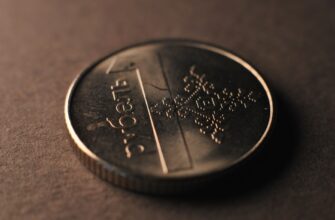- Introduction: Simplifying Bitcoin Purchases with Bank Details
- Why Buy Bitcoin with Account & Routing Numbers?
- Step-by-Step: How to Buy Bitcoin Using Account & Routing Numbers
- Step 1: Choose a Reputable Exchange
- Step 2: Create & Verify Your Account
- Step 3: Link Your Bank Account
- Step 4: Initiate Bitcoin Purchase
- Step 5: Transfer to Secure Wallet
- Top Platforms for Buying Bitcoin via ACH Transfer
- Critical Safety Tips for Bank-Based Bitcoin Purchases
- FAQ: Buying Bitcoin with Account & Routing Numbers
- Conclusion: Bank Smart, Buy Smarter
Introduction: Simplifying Bitcoin Purchases with Bank Details
Buying Bitcoin using your bank account and routing number offers a secure, low-fee alternative to credit card purchases. This guide breaks down the entire process into simple steps, highlights trusted platforms, and answers critical safety questions. With ACH transfers becoming a preferred method for crypto purchases, learn how to leverage your existing banking details for seamless Bitcoin acquisition.
Why Buy Bitcoin with Account & Routing Numbers?
Using ACH bank transfers for Bitcoin purchases provides distinct advantages:
- Lower Fees: Avoid 3-5% credit card surcharges (typical ACH fees: 0-1.5%)
- Higher Limits: Purchase more Bitcoin per transaction versus card restrictions
- Enhanced Security: No exposure of card numbers; bank-grade encryption
- Direct Integration: Seamless transfers from your existing bank account
Step-by-Step: How to Buy Bitcoin Using Account & Routing Numbers
Step 1: Choose a Reputable Exchange
Select platforms supporting ACH transfers like Coinbase, Kraken, or Gemini. Verify their licensing and FDIC insurance for USD balances.
Step 2: Create & Verify Your Account
Sign up with email/phone, complete KYC verification by uploading ID (driver’s license/passport), and enable two-factor authentication (2FA).
Step 3: Link Your Bank Account
Navigate to payment methods, select “Link Bank Account,” and enter your 9-digit routing number and account number. Most exchanges use instant verification via Plaid.
Step 4: Initiate Bitcoin Purchase
- Go to “Buy/Sell” section
- Select Bitcoin (BTC) and enter USD amount
- Choose “Bank Account” as payment method
- Confirm transaction details
Step 5: Transfer to Secure Wallet
Withdraw Bitcoin from the exchange to a non-custodial wallet (e.g., Ledger, Trezor) within 24-48 hours to maximize security.
Top Platforms for Buying Bitcoin via ACH Transfer
- Coinbase: Best for beginners; $1 minimum purchase (1.49% fee)
- Kraken: Low 0.16% fees; advanced trading tools
- Gemini: Regulated in NY; 10 free monthly withdrawals
- Binance.US: 0% fees on USD deposits; 0.1% trading fee
Critical Safety Tips for Bank-Based Bitcoin Purchases
- ✅ Always use exchanges with SOC 2 compliance and SSL encryption
- ✅ Never share banking credentials via email or unverified links
- ✅ Monitor account for unrecognized transactions weekly
- ❌ Avoid public Wi-Fi when initiating transfers
- ❌ Don’t store Bitcoin long-term on exchanges
FAQ: Buying Bitcoin with Account & Routing Numbers
Q1: Is this method safer than using debit/credit cards?
A: Yes. ACH transfers have built-in fraud reversal protections and avoid card skimming risks.
Q2: How long do transfers take?
A: Initial setup: 1-3 business days. Purchases: Instant Bitcoin access (funds settle in 3-5 days).
Q3: What are typical fees?
A: Most exchanges charge 0-1.5% for ACH buys versus 3-5% for cards. Network fees apply when transferring Bitcoin out.
Q4: Can I use savings accounts?
A: No. Only checking accounts support ACH transactions due to Regulation D limitations.
Q5: Are daily limits applied?
A: Yes. Limits start at $1,000/day for new users, increasing to $25,000+ with verification.
Conclusion: Bank Smart, Buy Smarter
Purchasing Bitcoin with account and routing numbers streamlines crypto investing while minimizing costs. By following this guide and prioritizing security measures, you can confidently build your Bitcoin portfolio using familiar banking infrastructure. Always verify platform legitimacy before linking accounts, and remember: true ownership only happens when Bitcoin moves to your private wallet.








